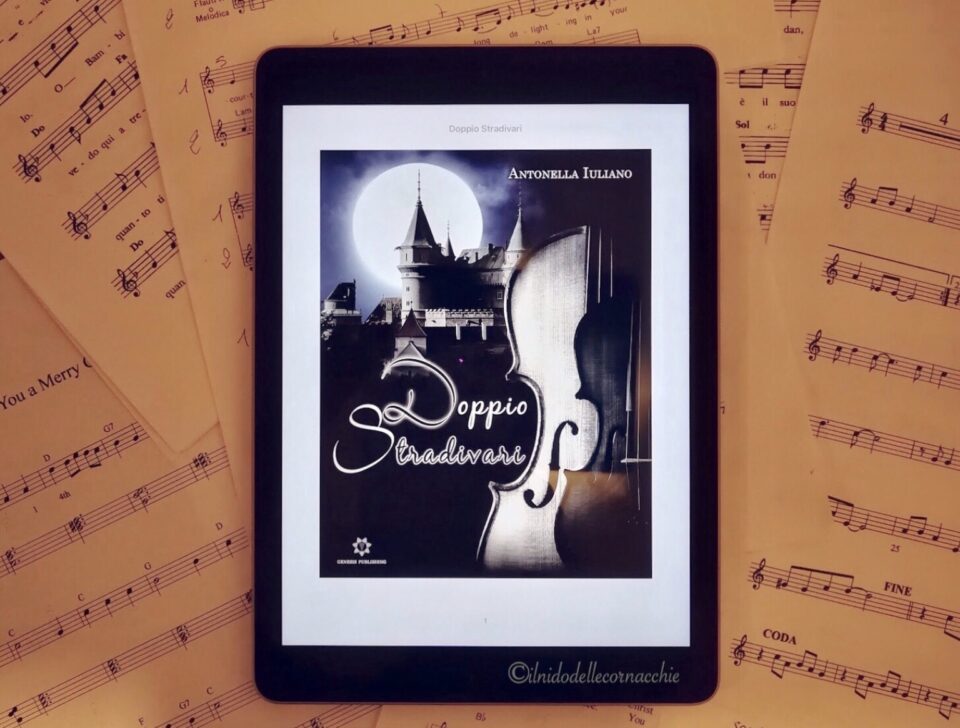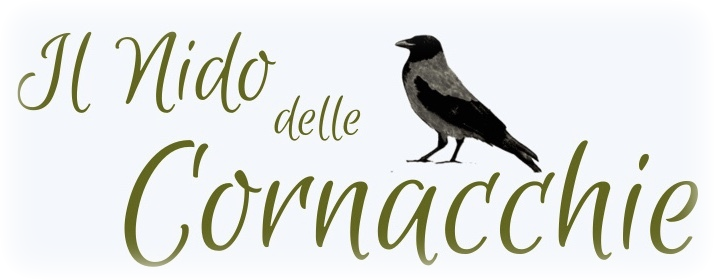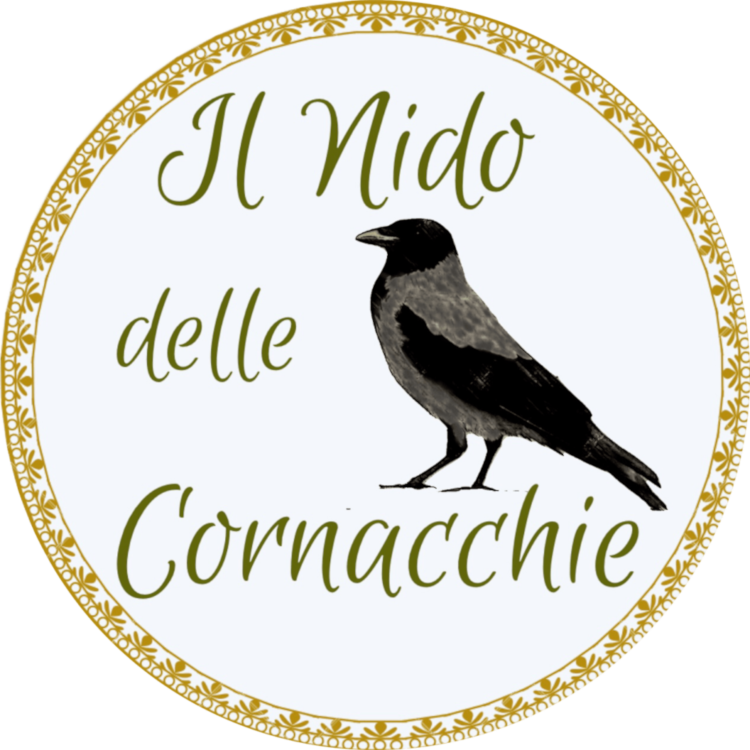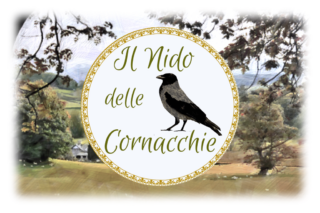Welcome back, dear readers.
First of all, a very important question: how are you?
Here, at the Nido delle Cornacchie, spring is moving fast towards summer, and a bit like in the rest of the country, and in most of the world, we are getting ready to return to normality.
So – as I told you last time – I thought I’d start with a series of themed posts (you can read the first one today, the other two in the coming days) dedicated to some of the books that have kept me company during the long period of lockdown.
Actually, finding the right book in the early days was not easy at all.
We do not all react in the same way when we are dealing with particularly stressful situations: there are people who, under pressure, bring out their best resources and manage to cultivate their passions with great profit and enthusiasm; there are others who, on the other hand, experience an unusual lack of energy and are unable, in spite of themselves, to get away from their daily worries and find the right concentration to devote themselves to what they love.
Unfortunately, I have the misfortune to belong to the second category!
Luckily for me, however, after wandering for a long time among the shelves (real and virtual) of my bookshelf, I came across a string of readings that unexpectedly managed to shake me out of my apathy.
These books are very different from each other, but – I only realised this while writing the post – they all have a curious detail in common: they have been written, or translated, by people I have met, and with whom I have had the pleasure of meeting, thanks to their shared passion for literature.
A trivial coincidence, it is true, but in an era dominated by the idea of the so-called “social distancing” (an expression, in my opinion, highly inappropriate) it acquires a special meaning: a proof of how the mere physical distance that we are called to observe, does not necessarily prevent the emotional and intellectual closeness between human beings!
But let’s not waste any more time, and come to a detailed and, I hope, interesting account of my reading during the lockdown: between missing violins, writers to be rediscovered and forgotten works…

The first book I’m going to talk about, Doppio Stradivari (Double Stradivarius – sadly it’s only available in Italian) , is a short novel I’ve been wanting to read for a long time.
It’s written by Antonella Iuliano, a young Italian author I met for the first time in 2017 on the social reading website Anobii. In addition to sharing with Antonella a predilection for the Brontë sisters, I greatly appreciate her courage in expressing, when needed, potentially unpopular opinions: a gift that is very rare nowadays.
With two other novels to her credit – Come petali sulla neve and Charlotte, both published by Genesis Publishing – and several participations in the De Leo-Brontë Literary Prize (where she placed third in 2016, with the story Il Profumo della Brughiera) Antonella is also co-editor of Lettere di Charlotte Brontë, a three-volume epistolary (the first was released at the end of March, the other two are currently in progress) published by Darcy Edizioni.
When I first picked up Doppio Stradivari, I must admit, I didn’t really know what to expect: I knew very little about the plot, and to avoid any anticipation, I had not read any reviews.
Well, despite the fact that it is obviously a contemporary novel, reading it was, for me, a bit like taking a very enjoyable plunge into the past: not only for the nineteenth-century atmosphere skilfully evoked, and for the classicism of the narration, but above all because of that curious familiarity that I felt from the very first pages, when, reading about castles shrouded in darkness, and solitary imprisoned maidens, I felt I was once again immersing myself in some of the mysterious and bewitching scenarios that, for years, had populated my unforgettable childhood dreams.

The story begins on a cold winter night, in an old manor house on the outskirts of Vienna. It is here that Lena Reiter, a young maid just hired by the haughty Countess Von Grath, is preparing to carry out a strange task entrusted to her by her employer: she will have to venture up to the top of the tower every night, leave a bundle of food there and leave without delay.
Once there, however, she discovers something unexpected and shocking: locked up within those walls, in fact, lives Larissa: a girl about her age, with a suffering appearance and a strangely familiar air, who is the victim, in spite of herself, of a terrible story.
Deeply impressed by the girl’s story and determined to help her, Lena agrees to undertake a delicate mission: to find two precious missing instruments, a white cello and a black violin, and to bring back the latter: a pledge of a great love, and perhaps the only possible means of salvation for her and those she cares about.

The clear references to classical archetypes, the natural ability to evoke ancient scenarios, the accuracy and sensitivity in portraying the attitudes and moods of the characters, not only denote the author’s deep connection to 19th century literature, but also reveal the extent to which her own writing has been influenced by it.
With a sober and descriptive style, and a handful of simple but effective ingredients, Antonella leads us by the hand through the paths of an enjoyable and engaging plot, which unfolds between mysteries, crimes, family reunions and a touch of unfailing romanticism. A story in which gothic atmospheres and typically fairytale elements interpenetrate, while the totalizing passion for music – the authentic keynote of the narrative – reconnects the threads of the past, becoming the very emblem of love and of a hope that has been buried for too long.
“He waited, and in those moments his heart began to beat again as it had not done for a long time; beats of a suspended life that pulsates again, of painful life that flutters like a caged bird whose wounds have now healed and claims happy flight, the cool, reassuring foliage of the trees, its own free song.”
Against the carefully recreated background of a fairytale of the old days, suitable for both grown-ups and children, the scene is dominated by the eternal struggle between good and evil, the perpetual clash between greed, selfishness, meanness and that set of values – solidarity, friendship, loyalty, justice – that are often undervalued and whose relevance needs to be rediscovered.
This message is always present and clear between the pages of the story, where, alongside the melody of Larissa’s violin, there is another sound that distinctly resonates in our ears: that of Antonella’s voice, so genuine, sympathetic and passionate that, in some brief passages, it overpowers even her own characters.
No wonder, because you just need to be swept along by her narration to understand that she has really put her heart into it.
Sustained by a pleasantly flowing rhythm, the story proceeds swiftly between moments of tension and revelations, culminating in an epilogue marked by hope and, at last, newfound peace.
And if, after so many vicissitudes, the conclusion, in the eyes of some, may not be completely unexpected, it is worth noting that, as in any good fairy tale, a hint of predictability is the price that sometimes you have to pay to give everyone the well-earned ending, and leave readers with a happier heart.
“Amidst the many clouds over human existence, even in the darkest nights, when we think there is no way out, the faintest ray of light can save us.”
➥Find out more…
If you would like to get to know Antonella better, I recommend her blog: Antonella Iuliano Autrice, where you can find lots of interesting information about her work and passions.
In the meantime, with the second part of Reading in times of lockdown, I would like to give you an appointment for next week to discover the biography of a talented and far-sighted American female author from the beginning of the twentieth century, who is unfortunately still not sufficiently remembered today… I look forward to welcoming you!




